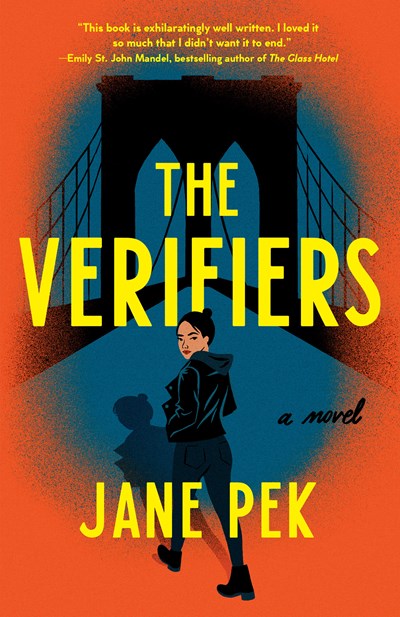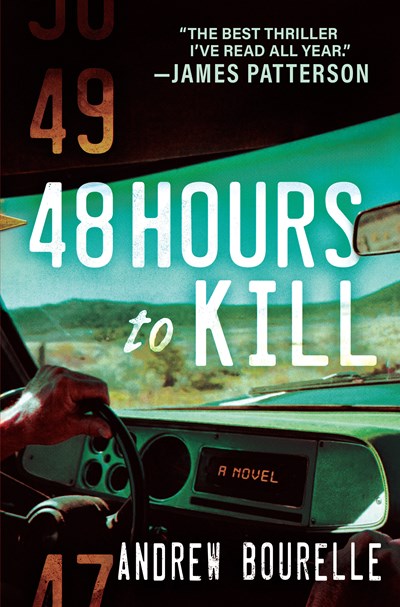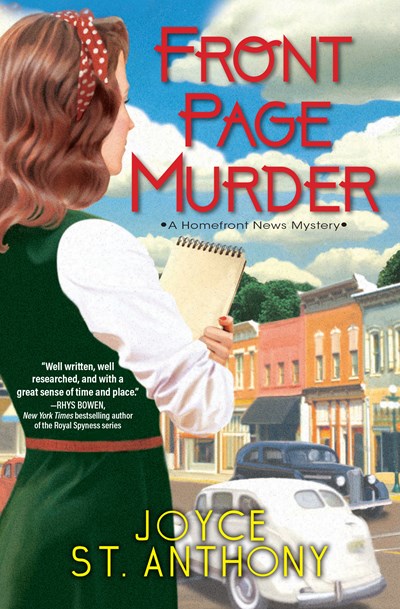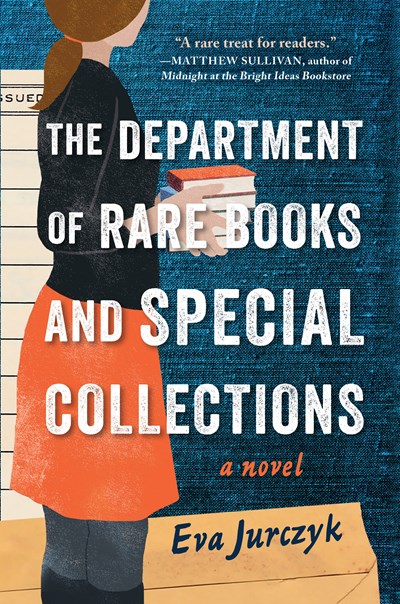Anyone who’s worked in publishing will recognize the low pay, deadline whirlwind, and scramble for recognition facing Carmen Valdez, a Miami transplant in New York. Worse, she’s a secretary trying to advance in a man’s world within a man’s world—comics publishing in 1975. Male colleagues sometimes show up drunk and their work is barely passable. Still, Carmen’s boss, whose father started the company, reminds her that “in the real world, we grant jobs based on experience and merit” when she gives him her comics scripts. Then her smoking buddy at work, Harvey, proposes to help by submitting a project by the two of them, but mainly by her, as his, and to reveal her authorship once it’s a success. Things don’t go according to plan, with not only Carmen’s professional future but also her safety jeopardized by a killer targeting her circle. Complementing this puzzling whodunit is a major plus for comics and graphic novel readers: Segura’s insider view of the comics industry and its history, as well as his spot-on chronicling of the too-frequent backstabbing among striving artists. For fans of Zakiya Dalila Harris’s The Other Black Girl, another look at a young woman trying to make it in publishing
Amateur Sleuth
Á la Anna Lee Huber’s Verity Kent and Stephanie Graves’ Olive Bright, Electra (Ellie) McDonnell has taken on a “man’s job” while much of the male workforce is away fighting World War II. Ellie is a heroine with a difference, though: she’s a former thief, from a London family that has called its safe-cracking ways to a halt. They’re now working as locksmiths and, in Ellie’s case, using those skills to aid the war effort. Ellie’s government handler, posh Major Ramsey, comes calling again in this second in the series (after A Peculiar Combination, 2021) when a young woman is found dead wearing an unusual, locked bracelet. Locksmithing again comes into play when a key turns up as part of the case, but it soon takes a back seat to Ellie’s other skills. This memorable, tough sleuth continues her investigation into the young woman’s death and her own mother’s long-ago imprisonment as the Blitz starts and a cousin at the warfront hasn’t been heard from. Happily, romance enters the picture, with Ellie pursued by both the major and a more down-to-earth family friend, Felix Lacey. The mysteries, danger, and emotional hills and valleys that are life in wartime will keep readers rapt here and wanting more from this almost-honest woman and her loving, protective circle.
Heads up! A smart, witty amateur detective has entered the crime fiction galaxy, and you won’t want to miss her. Twenty-five-year-old Claudia Lin, from a Taiwanese-American family, doesn’t live up to anyone’s model-minority expectations. She visits her mother in Queens monthly (not weekly), dates girls (not nice Chinese boys), and has a job (not a career). But her position at Veracity, a sort of detective agency that can suss out the truthfulness of one’s online dates, turns out to be tailor made for her. So much so that when Iris, one of her clients, suddenly disappears, Caroline falls down the rabbit hole in pursuit of her, unearthing shocking information both about online dating companies and the fate of Iris. While solving the mystery is central to the novel, Claudia’s complicated relationships with her mom, Harvard-educated brother, and beautiful, vain sister provide wonderful distractions. For readers who enjoy quirky characters, strong female leads, and love/hate family relationships.
A mystery with all the right ingredients, in all the right proportions: compelling crime, eccentric characters, dishy police chief, fascinating location, and above all else, Lana Lewis, a quirky, smart, witty, and sarcastic protagonist. After getting laid off from her job as a journalist in Miami, Lana moved back to her hometown of Devil’s Beach, a barrier island north of the city, and opened Perkatory, a happening coffee shop. When Raina—who owns the hot yoga studio next door—goes missing, Lana dusts off her journalism creds and heads into the contentious, and gossip-ridden, world of yoga to cover the story for the local paper. But finding Raina takes a village, and Lana gets help from a wonderful cast, including her yoga-loving, hippie Dad—whose medical marijuana prescription is always filled—and Noah Garcia, the aforementioned police chief. Lana and Noah’s burgeoning relationship, despite plenty of professional conflict, is a strong element in the novel. But at the book’s heart is Lana, a complex character who’s recovering from a divorce, wary of romance, and uncertain about her career, yet with a great sense of humor. If I can’t spend the afternoon hanging out with Lana in Perkatory, then please get me the next volume in this series ASAP.
A gripping thriller that is begging to be made into a motion picture. Ethan Lockhart, serving time in a Nevada jail for armed robbery, is released on a 48 hour furlough to attend the funeral of his younger sister, Abby. Ethan is devastated—he and Abby were super tight—but he’s also suspicious: his sister Abby was clearly assaulted in her home, but her body was never found. Ethan suspects Shark, his former boss, a one-time minor loan shark who’s now a major Reno crime boss. Ethan teams up with Abby’s best friend, Whitney—sparks fly!—and they descend into the criminal underground he had hoped to have left behind. The plot never wavers, and the few subplots all add to the story. Bourelle really cranks up the pace—the book just flies—and each chapter is ingeniously named after how many hours are left before Ethan needs to turn himself in. Netflix, please get on this!
From the outside, Desiree Pierce had it all. Famous hip-hop producer father, starring role on a rich-kid reality show, a huge audience following her every diamond-studded move on Instagram. But her sister, Melina, or Lena, has waited years for the phone call saying that drugs have finally killed Desiree, and that moment is here. Fed up as she is with donning her metaphorical Super Black Woman cape, Lena drags it on, again, to start picking up the pieces. But the background to Desiree’s supposedly accidental death starts to look off. For starters, she was terrified of needles and never would have injected heroin like the police say. And what was she doing in Lena’s residential Bronx neighborhood, miles from her glitzy lifestyle? Lena’s fast-paced investigation of what she believes to be a murder takes her back to painful episodes with her family, a clan tight-knit enough to care deeply about one another but that at the same time can get exasperated to the point of estrangement. Twists combine with deft writing and compelling characters—especially the relatable Lena—to create a memorable novel that’s perfect for those who like tales of flawed love and strong women.
What’s better than a bookstore? Hardly anything, unless it’s a bookstore with a fabulous soul-food café, the business venture, and adventure, embarked on here by twins Koby Hill and Keaton Rutledge. The two are just getting to know each other, having been raised apart when Koby was put in foster care and Keaton adopted. Many twins in popular culture are portrayed as either freakishly similar or freakishly different, not that I’m bitter as a twin or anything, but these are regular siblings who get along while tiptoeing around their new relationship. Koby is protective of his sister and nervous that the flirting going on between Keaton and his best friend, Reef, will turn to more, a fear that ends when Keaton finds Reef dead on the subway. Reef knew he was in danger, it seems, and left his friend a legacy that leads the twins on a well-plotted quest for justice that’s filled with the quirky characters and yummy-food references readers expect in a cozy. I wished for recipes at the end, and those will be in the book when it’s released. After that, you can look forward to more books about Koby and Keaton, as this is the first in a new series. Collette’s (aka Abby L. Vandiver) work is sure to appeal to fans of Cleo Coyle’s Coffeehouse Mystery series, the Singaporean Mystery series by Ovidia Yu, and Mia P. Manansala’s Arsenic and Adobo.
Yes, another cover featuring a woman in a period outfit with her back turned towards us—except this time the book is a rollicking good mystery. It’s World War II, the U.S. has just entered the war, and Irene Ingram’s fiancé and father have both enlisted, leaving Irene to step into her father’s shoes as editor-in-chief of the Progress Herald, the local paper. Young—she’s in her early twenties—and female, Irene has to continually prove herself, whether it’s to her mother who doesn’t believe women belong in the workforce or to the newspaper staff who bridle under a woman’s leadership. When her star reporter, Moe Bauer, is discovered dead at the bottom of a flight of stairs, Irene has more pressing matters to attend to than the grousing among her staff, all the more so when she figures out that Moe was likely murdered. Then Sam Markowicz, owner of the local hardware store, becomes the victim of anti-Semitic harassment, and another man, also Jewish, is attacked in a local factory. Irene puts aside features about victory gardens and the like and dives into a criminal investigation. The setting—small time life during World War II—is a brilliant choice, and the language and references are pitch perfect. Fans of Jacqueline Winspear’s Maisie Dobbs, Rhys Bowen’s Molly Murphy, and Mariah Frederick’s Jane Prescott will enjoy meeting Irene Ingram.
A beautiful, powerful novel that is as simple in its telling as it is deep in its emotions. Eli Stone is a shell of a man, undone by the death of his beloved wife and desperate to find an excuse to keep on living. Renovating The Roz, a landmark jazz club in the center of Denver’s African American community, is his latest effort to give his life meaning. The club is about to open when in walks Liza, a law student who has dedicated her life to saving her Dad, Langston, who sits on death row, falsely accused of robbery and murder. Eli and Liza recognize the need in each other, but put aside their feelings to focus on clearing her father. When Langston is sentenced to be executed in 30 days, the tension ramps up and the suspense becomes unbearable. Throughout, Eli turns to memories from his past, especially that of a priest who helped raise him and gave him the skills to survive as a Black man in a racist world. Wrongful conviction is one of the greatest injustices in our legal system, and crime fiction provides a perfect tool for exploring it. I can’t wait to read more about Eli and Liza. In the meantime, this book would make a great choice for book groups that want to use fiction as a springboard to discuss racism, anti-racism, and incarceration.










